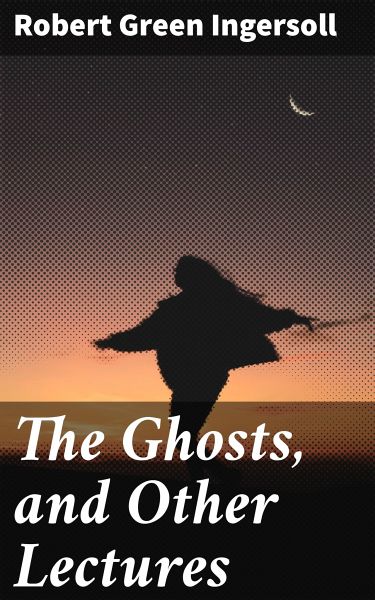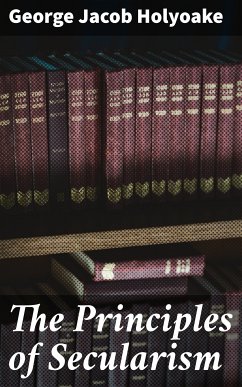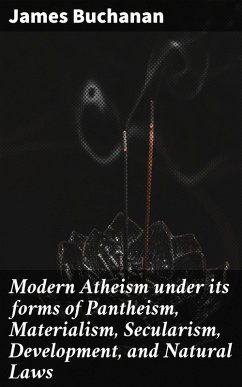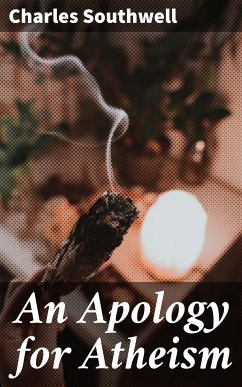
The Ghosts, and Other Lectures (eBook, ePUB)
Enriched edition. Challenging Beliefs and Embracing Reason in the 19th Century
Kommentar: Ross, Megan / Redaktion: Good Press
Versandkostenfrei!
Sofort per Download lieferbar
0,49 €
inkl. MwSt.
Weitere Ausgaben:

PAYBACK Punkte
0 °P sammeln!
In "The Ghosts, and Other Lectures," Robert Green Ingersoll presents a compelling collection of essays that challenge conventional beliefs and invite readers to interrogate the nature of existence, religion, and morality. Ingersoll's literary style is marked by his eloquent rhetoric, sharp wit, and incisive logic, characteristic of the oratory prevalent in the late 19th century. The work serves as a remarkable tapestry of skepticism and reason, juxtaposing scientific inquiry with metaphysical questions, making it a vital contribution to the American freethought movement during a period marked ...
In "The Ghosts, and Other Lectures," Robert Green Ingersoll presents a compelling collection of essays that challenge conventional beliefs and invite readers to interrogate the nature of existence, religion, and morality. Ingersoll's literary style is marked by his eloquent rhetoric, sharp wit, and incisive logic, characteristic of the oratory prevalent in the late 19th century. The work serves as a remarkable tapestry of skepticism and reason, juxtaposing scientific inquiry with metaphysical questions, making it a vital contribution to the American freethought movement during a period marked by rising anti-religious sentiment and intellectual discourse. As one of the most prominent agnostic thinkers of his time, Ingersoll was profoundly influenced by the Enlightenment ideals of rationality and empirical evidence. His upbringing in a strict religious environment, combined with an extensive education in law, positioned him to critically assess religion's societal roles and the implications of superstition on human progress. His fervent advocacy for humanism and civil liberties is rendered throughout his lectures, reflecting his commitment to social change and intellectual enlightenment. I highly recommend "The Ghosts, and Other Lectures" to readers seeking a thought-provoking examination of spirituality and existential questions through the lens of reason. Ingersoll's passionate arguments and articulate delivery not only illuminate philosophical inquiries but also resonate with contemporary discussions about belief, ethics, and the human condition, making it an essential read for anyone engaged in critical thought. In this enriched edition, we have carefully created added value for your reading experience: - A comprehensive Introduction outlines these selected works' unifying features, themes, or stylistic evolutions. - A Historical Context section situates the works in their broader era-social currents, cultural trends, and key events that underpin their creation. - A concise Synopsis (Selection) offers an accessible overview of the included texts, helping readers navigate plotlines and main ideas without revealing critical twists. - A unified Analysis examines recurring motifs and stylistic hallmarks across the collection, tying the stories together while spotlighting the different work's strengths. - Reflection questions inspire deeper contemplation of the author's overarching message, inviting readers to draw connections among different texts and relate them to modern contexts. - Lastly, our hand-picked Memorable Quotes distill pivotal lines and turning points, serving as touchstones for the collection's central themes.
Dieser Download kann aus rechtlichen Gründen nur mit Rechnungsadresse in A, B, BG, CY, CZ, D, DK, EW, E, FIN, F, GR, H, IRL, I, LT, L, LR, M, NL, PL, P, R, S, SLO, SK ausgeliefert werden.













